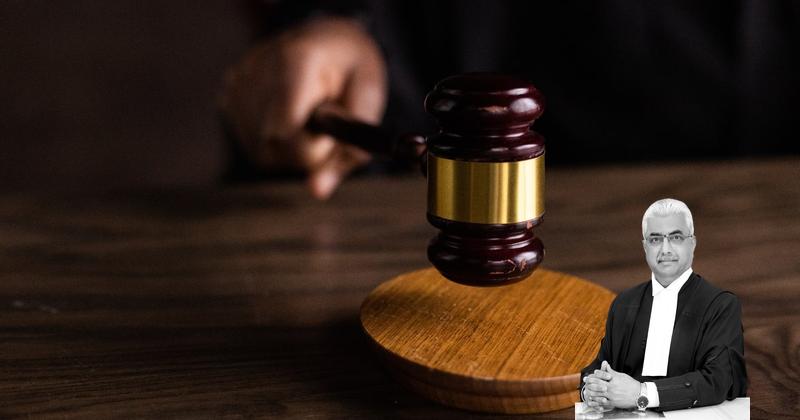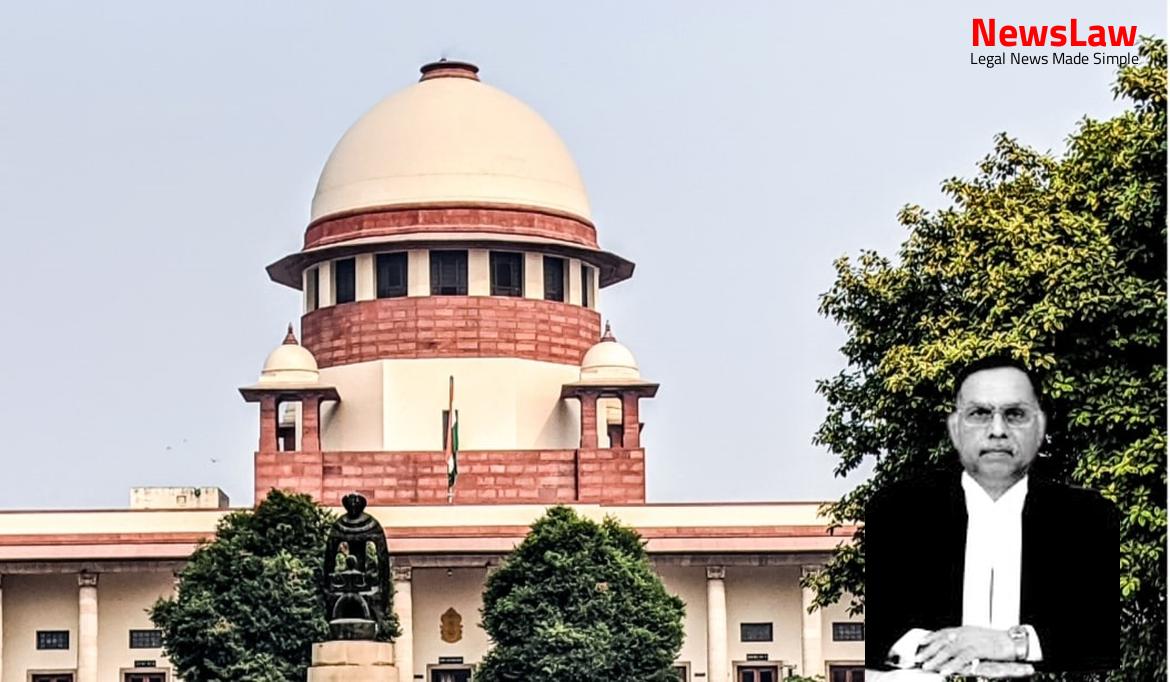In a recent legal case, the court delved into the intricate process of determining compensation for loss of future earning capacity in a disability scenario. The court’s detailed analysis emphasized the need to assess the impact of the injury on the victim’s ability to work and earn a livelihood. By focusing on legal principles and fair assessment criteria, the court’s decision sheds light on the significance of just and equitable compensation in cases of disability.
Facts
- The appellant, at the age of 20, was injured in a motor accident while traveling in a bus.
- The accident occurred when the driver of the offending bus attempted to overtake from the wrong side, causing injuries to the appellant.
- The appellant suffered serious injuries resulting in 89% disability in his right upper limb, which had to be amputated.
- An FIR was registered for the accident under sections 279 and 338 of the Indian Penal Code.
- The appellant claimed compensation under Sections 166 and 140 of the Motor Vehicles Act, 1988, against the driver, owner, and insurer of the bus.
- The Tribunal assessed the appellant’s loss of future earning capacity and other damages, awarding compensation for medical expenses, pain and suffering, and loss of income among other factors.
- The Tribunal applied a multiplier of 18 to calculate the compensation for loss of future earning capacity.
- The High Court revised the compensation for loss of earning capacity by removing the 50% addition towards future prospects.
- The revised compensation for loss of earning capacity was assessed at ₹7,77,600 based on a calculation of ₹8000 x 12 x 45% x 18.
- The total compensation was reassessed to be ₹14,36,600 by the High Court after enhancing various other heads of compensation.
- An interest of 9% per annum was imposed on the total compensation.
- The High Court reduced the amount awarded for loss of future prospects after referring to specific judgments by three-judge benches of the Supreme Court.
- The appellant argued that the assessment of monthly income should have been Rs.12,000 instead of Rs.8,000.
- It was contended that the High Court should have reassessed and not reduced the loss of future earning capacity of the appellant.
- The appellant claimed that even self-employed individuals should receive future prospects compensation, as per Supreme Court rulings.
- The High Court also erred in assessing the physical permanent disability of the injured as 45% instead of 100%.
Also Read: Legal Analysis of Claim for Loss of Profit in Delayed Contract
Issue
- Can claimants seek amounts for future prospects in cases of permanent disablement from a motor accident?
- What is the extent of disability to be considered in such cases?
Also Read: Public Declaration Requirement in Marriage under Hindu Marriage Act
Arguments
- High Court misread and created a distinct category where addition in income towards ‘future prospects’ can only be given in case of death, not for injury.
- Permanent disability of loss of one arm does not lead to a 90% loss of earning capacity.
- Assessment of compensation for loss of earning capacity correctly fixed at 45%.
- No proof of income tax payment to support the claim of earning ₹12,000 per month.
- Merely producing a PAN card does not establish income at the claimed level.
- The impugned judgment correctly appreciated the law and rejected the loss of alleged future earning capacity.
Also Read: OCI Cardholders’ Rights and Retroactive Notifications
Analysis
- Courts should consider the impact of the injury on the victim’s earning capacity when awarding compensation.
- Disability should be assessed based on its effect on the individual’s ability to earn income.
- Assessment of injury should focus on the resultant loss to the earning capacity of the victim.
- The percentage of economic loss may differ from the percentage of permanent disability.
- Compensation should aim to place the victim in a similar financial position as pre-accident.
- Consideration of future prospects is essential in determining compensation for loss of income.
- Assessment should be based on the individual’s circumstances and actual earning potential.
- Just and fair compensation is crucial to maintaining the dignity of the victim.
- Compensation calculations should be realistic and reflect the individual’s actual income potential post-injury.
- Courts must account for the impact of the injury on the victim’s ability to work and earn a livelihood.
- Courts should not adopt a stereotypical or myopic approach in assessing compensation for disability
- Occupation of vegetable vending involves procuring vegetables and selling in retail markets
- Difficulty in producing documents to prove income for self-employed individuals
- Importance of considering loss of earning capacity in cases of disability
- Applying the appropriate multiplier based on age for calculating compensation
- Sensitivity required in cases of manual labor where loss of limb equals loss of livelihood
- Differentiating between pecuniary and non-pecuniary damages in compensation
- Challenges in determining ‘just compensation’ that is fair and reasonable
- Consideration of sufferings and impact on normal life while computing compensation
- Analysis of loss of future earning capacity due to permanent disability
- Importance of tangible evidence in scaling down compensation for disability
- Inclusion of various damages like mental and physical suffering in compensation assessment
- Courts should consider all circumstances of the case when awarding compensation to a victim
- If courts award insufficient amounts, it can be seen as an affront to the injured victim
- Other heads of compensation, such as medical expenses, pain and suffering, special diet, loss of income, etc., do not require interference in their assessment by the High Court
Decision
- The impugned judgment is modified with the amount of ₹ 19,65,600 substituted for ₹ 7,77,600 due to enhancement towards loss of earning capacity and future prospects.
- An additional amount of Rs 2 lakhs is granted to the appellant for pain, suffering, and loss of amenities.
- Rs 3 lakhs is allowed towards future medical expenses for the appellant.
- The above amounts should be deposited before the Tribunal within 6 weeks and paid to the appellant upon proper identification.
- The appeal is partly allowed with the modified terms in place, and no costs order is issued.
Case Title: PAPPU DEO YADAV Vs. NARESH KUMAR (2020 INSC 553)
Case Number: C.A. No.-002567-002567 / 2020



